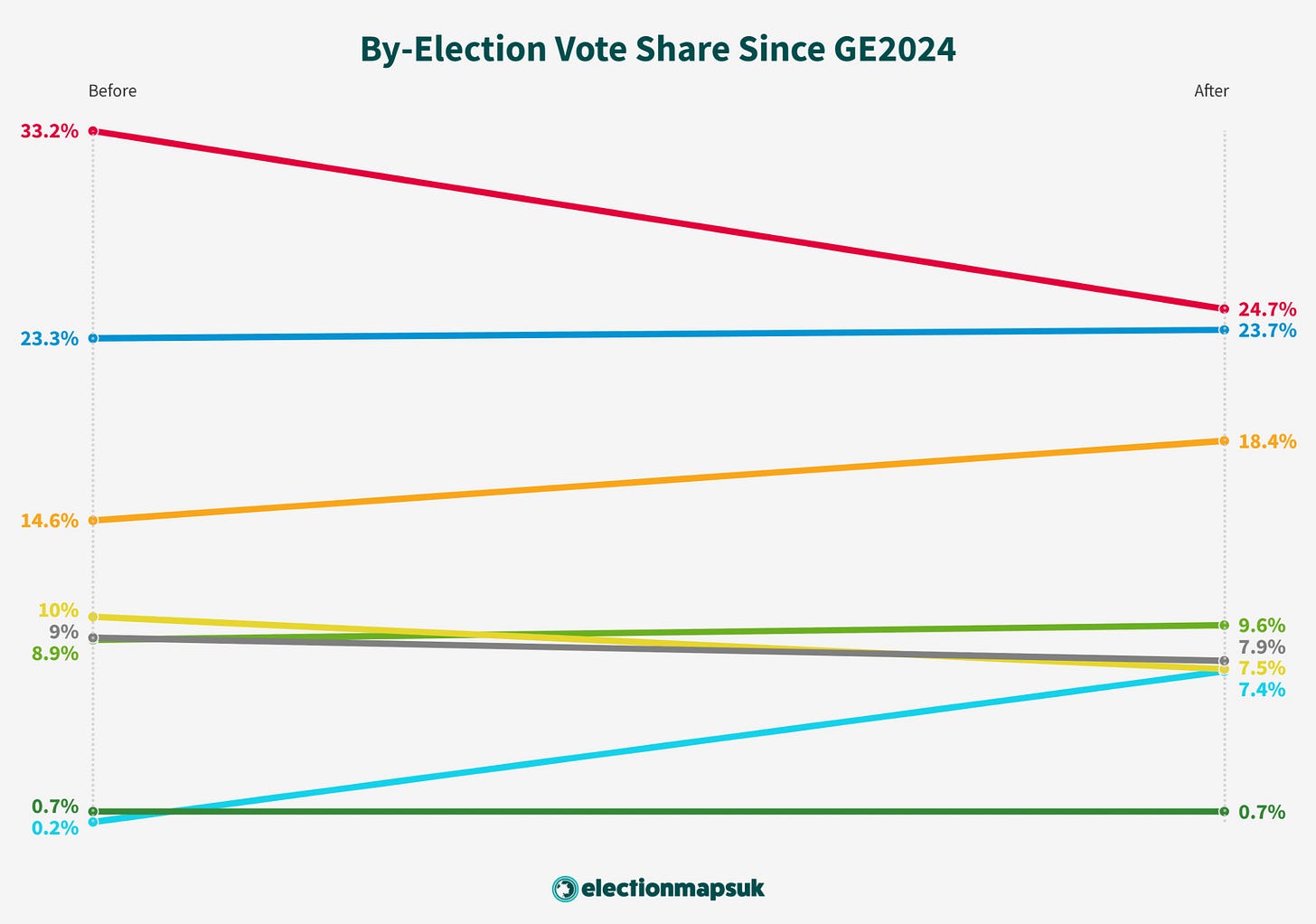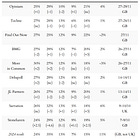Welcome to the 139th edition of The Week in Polls (TWIP), which looks at the possible revival of a regular polling feature of the last Parliament, the don’t knows.
Then it’s a summary of the latest national voting intention polls and a round-up of party leader ratings, followed by, for paid-for subscribers, 10 insights from the last week’s polling and analysis.
This week, that includes what people think about the prospect of another EU referendum.
But first, it is nearly Christmas!1 So here’s a little gift: sign up now for the paid-for version of this newsletter and get a whole 90 days for free. That will see you through to Spring!
Or buy a gift subscription as a present for someone else:
Want to know more about political polling? Get my book Polling UnPacked: the history, uses and abuses of political opinion polling.
Are the don’t knows back?
During the 2019-24 Parliament, it was often commented that many 2019 Conservative voters in the polls had switched to don’t know, rather than making the move all the way over to picking another party. That caused debate about whether it meant the Conservatives had a plausible route to recovery, and whether Labour was failing as an opposition party. It also meant differences opened up between the pollsters, with their figures varying depending on how they treated the don’t knows.
I was never that convinced that the don’t knows would rescue the Conservatives, in part because of my own prior experience:
My only appearance of Radio 4’s Today programme came in 2012, courtesy of don’t knows. I had done some exclusive analysis of YouGov data showing that many people who voted Lib Dem in 2010 had switched to ‘don’t know’ rather than to another party. I therefore was able at a horribly early hour to give a plausibly optimistic take on the Lib Dem predicament, pointing out how those Lib Dem defectors hadn’t actually been won over by other parties, and so there were good grounds for the Lib Dems to hope to win them back.
Plausibly optimistic at the time, perhaps. But time since has not been kind to my early morning optimism.
That debate from the last Parliament, over parties and polling methodologies, was put to rest by the general election result. The don’t knows did not rescue the Conservatives and (based at least on initial polling post-mortems) how pollsters handled the don’t knows was not a major issue behind which pollsters did best and which worst.
But now perhaps we should be starting to think about the don’t knows again.
Because look at what has happened to the Labour vote since July, as shown by the ever-excellent Dylan Difford:
Look at that big Labour to don’t know switch. It is by some margin the biggest single switch since the general election.
Overall, about 40% of Labour’s (gross) losses that have gone to don’t know or won’t vote, compared with about 25% going to Conservative or Reform.
For the Lib Dems in 2010-15 and for the Conservatives in 2019-24 their losses of support to don’t know were portents of electoral doom. Those are, however, only two data points. It may be that this time the switchers to don’t know are still unsure about Labour, rather than sure they’ve gone off the party but just not sure about who to pick instead.
However, we do also have some insight from council by-elections, where voters are forced to pick a party2 rather than being able to put a cross next to ‘don’t know’:
That suggests there is a genuine electoral problem brewing for Labour, and not just a limited consequences quirk caused by its supporters dallying with ‘don’t know’.
Of course, we should always add the ‘Mrs Thatcher’ caveat to such things. Her electoral descent after winning in 1979 was even worse than this government’s, but she went on to win two more general elections and her party also went on to win a further one after that too.
The one things we can though be fairly sure about is that if the don’t know pattern persists, expect variations between the results from different pollsters and so debates over pollster methodologies to kick off again - and this newsletter will of course be in your inbox to guide you through those.
Voting intentions and leadership ratings
Here are the latest national general election voting intention polls, sorted by fieldwork dates. As you can see Find Out Now’s latest poll has reverted to a pattern in line with that of other pollsters after its previous attention-grabbing poll putting Reform in second (although all the changes are by very slim margins anyway):
Next, a summary of the latest leadership ratings, sorted by name of pollster:
For more details, and updates as each new poll comes out, see my regularly updated tables here and follow The Week in Polls on Bluesky.
For the historic figures, including Parliamentary by-election polls, see PollBase.
Catch-up: the previous two editions
My privacy policy and related legal information is available here. Links to purchase books online are usually affiliate links which pay a commission for each sale. Please note that if you are subscribed to other email lists of mine, unsubscribing from this list will not automatically remove you from the other lists. If you wish to be removed from all lists, simply hit reply and let me know.
Environmentalism and feminism viewed favourably by most, and other polling news
The following 10 findings from the most recent polls and analysis are for paying subscribers only, but you can sign up for a free trial to read them straight away.
YouGov has new polling out, revealing public support - or not - for various
Keep reading with a 7-day free trial
Subscribe to The Week in Polls to keep reading this post and get 7 days of free access to the full post archives.








